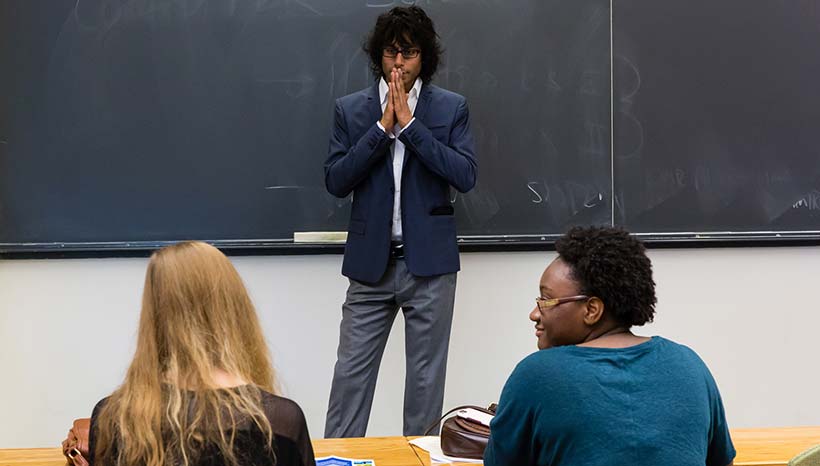
Asian Languages and Civilizations 285, Religion 285: “The Quran and Its Controversies”—Tariq Jaffer, associate professor of religion.
The study of Islam at Amherst goes back more than 160 years, Tariq Jaffer, associate professor of religion, recently learned—the 1854–55 catalogue lists courses on Islamic religion, literature and culture.
But he has also realized that Amherst students—“both Muslim and non-Muslim”—generally know little about the Quran, despite the fact that it is “unarguably one of the most widely recited and read texts in the history of humankind,” he says. For Muslims around the world, the Quran has provided “blueprints for spiritual and moral guidance, theories of the state, and [a] model for understanding both the natural world and the metaphysical realm.”
In Jaffer’s new course, students read the Quran, learn about its historical context and consider how it engages and adapts ideas, symbols and rituals from other Near Eastern traditions, particularly Judaism and Christianity. How have Muslims throughout history reconciled seemingly contradictory material within the Quran? How have they explained the book’s proclamation that it is of supernatural origin? What is the nature of divine speech? In Islamic society, what literary devices, methods of reasoning and sources of religious authority have been invoked to interpret the scriptures?
For Amherst students, “knowledge of Islam and, more broadly, knowledge of other cultural and religious traditions, is of paramount importance,” the professor says. There are 1.6 billion Muslims in the world today—constituting about 23 percent of the population—including 3 million in the United States alone. The sacred book helps shape their worldview and daily activities. “By studying the Quran,” Jaffer says, “students will develop a global mindset, become more cosmopolitan and less insular in their outlooks.”
